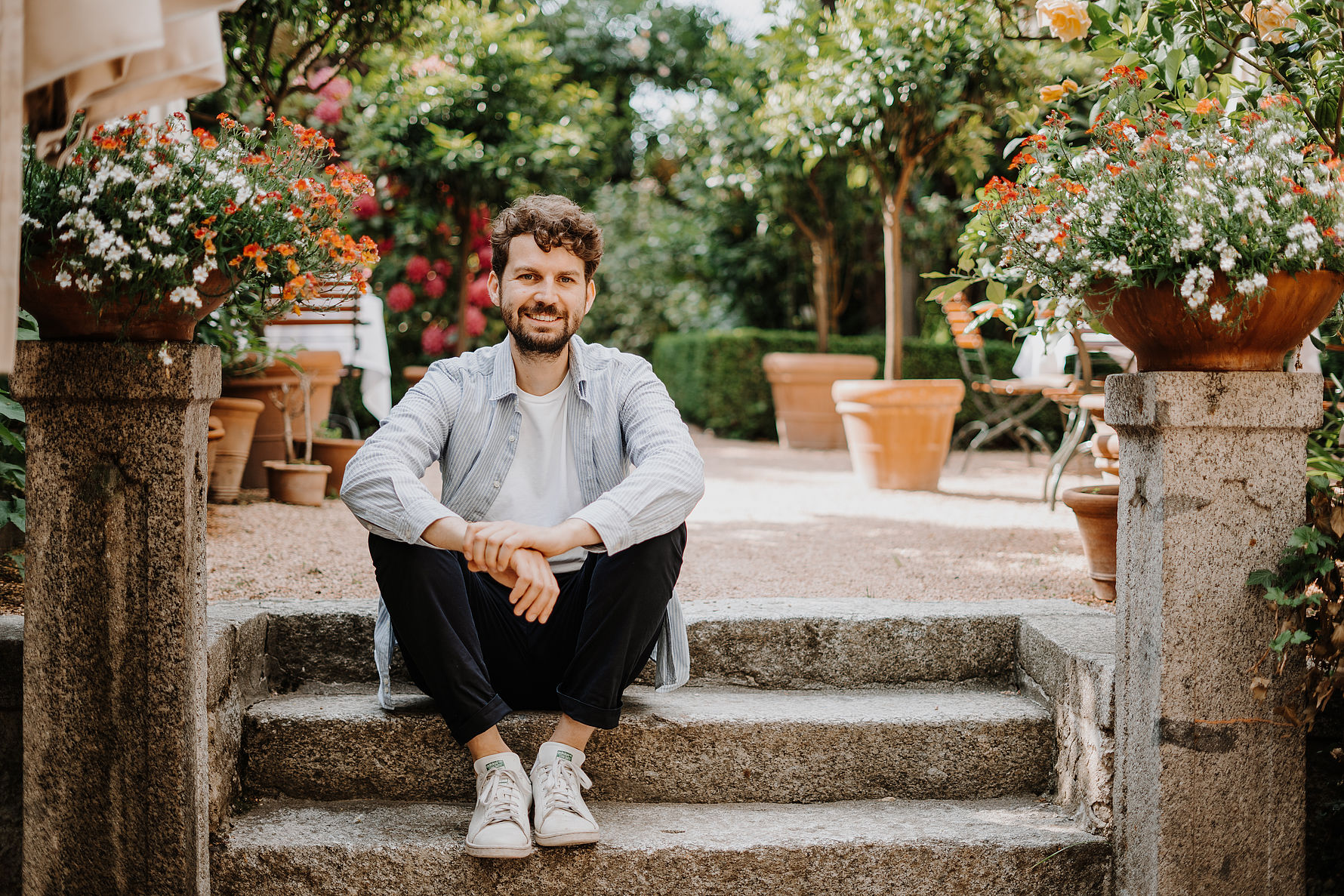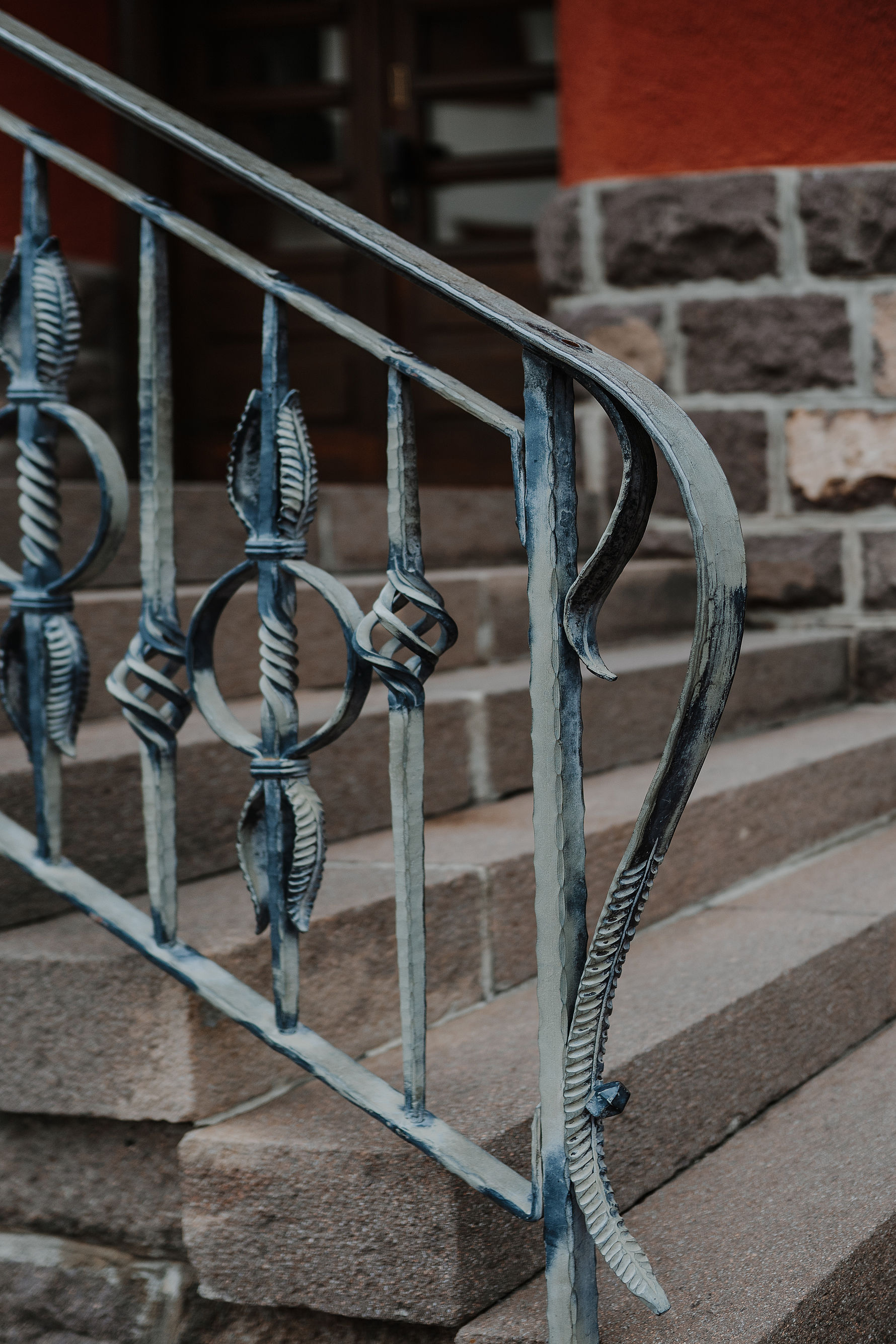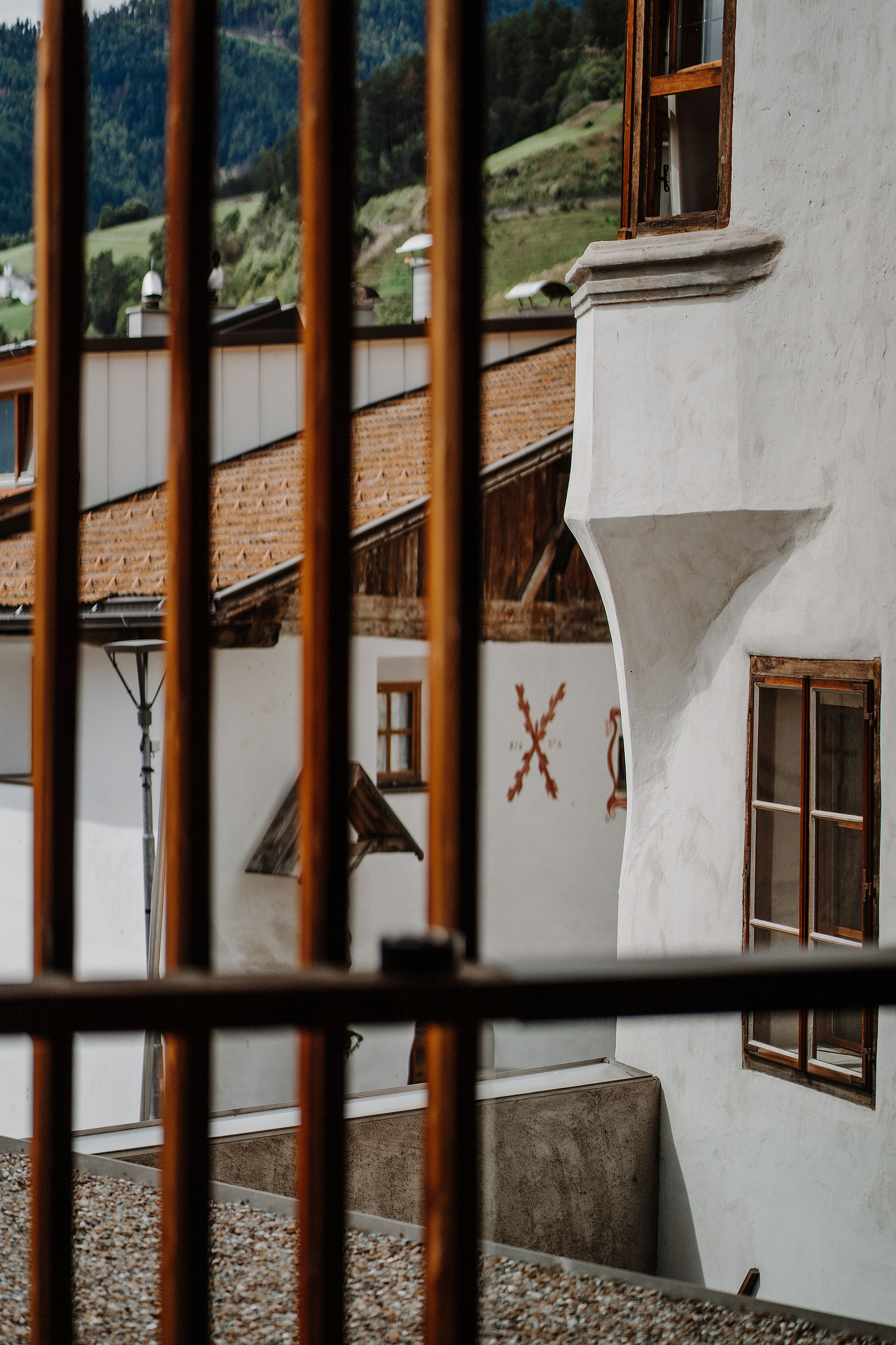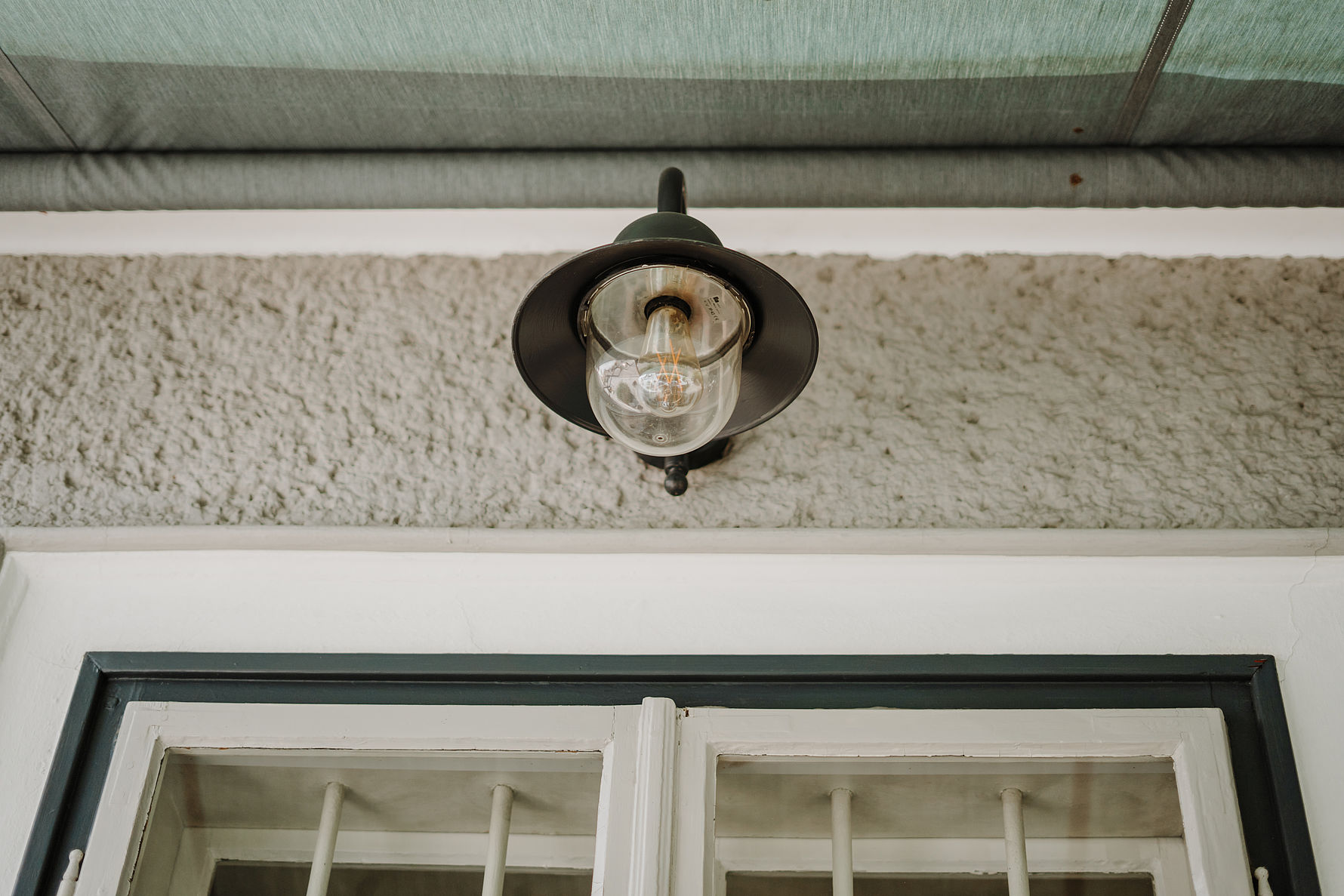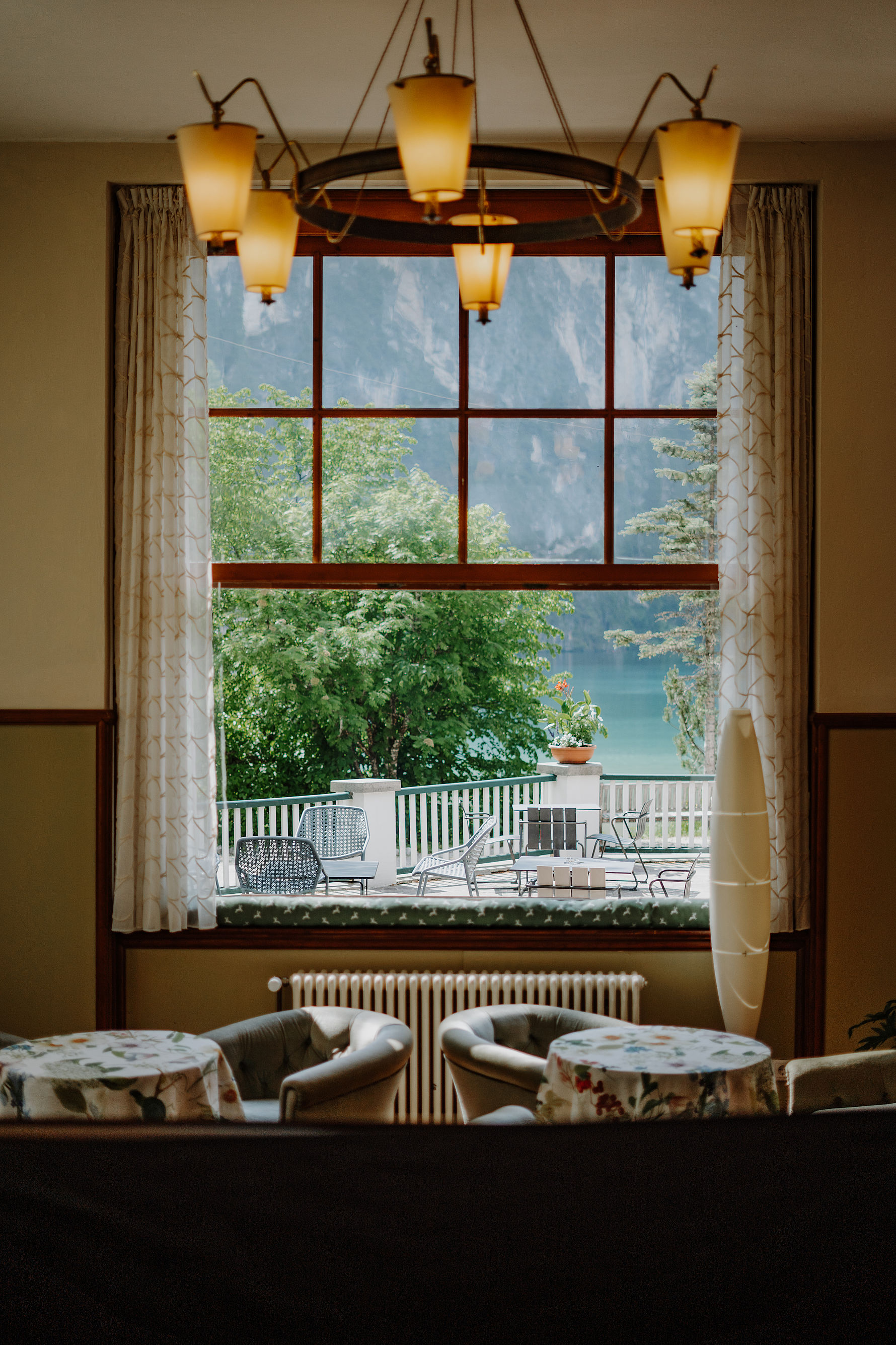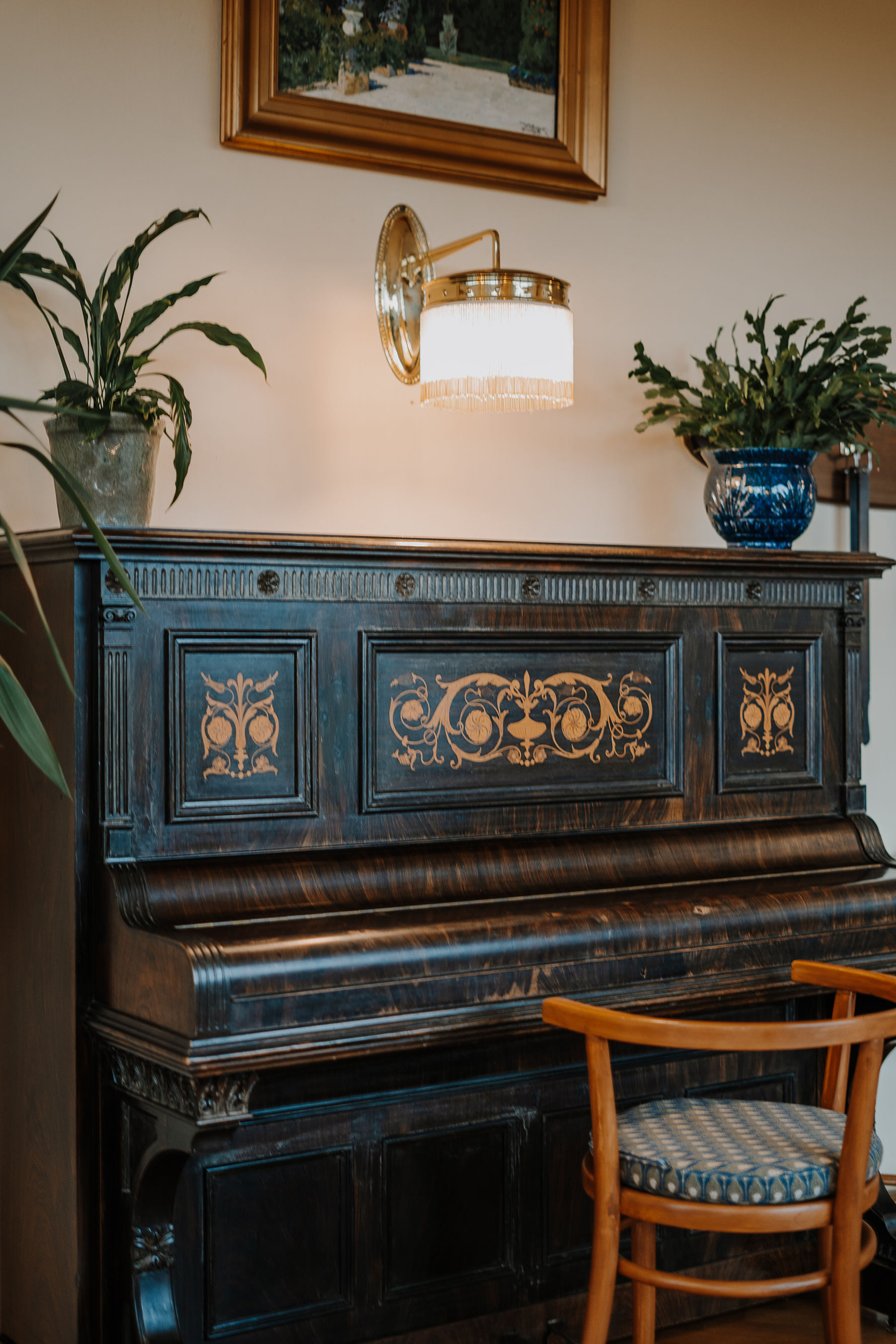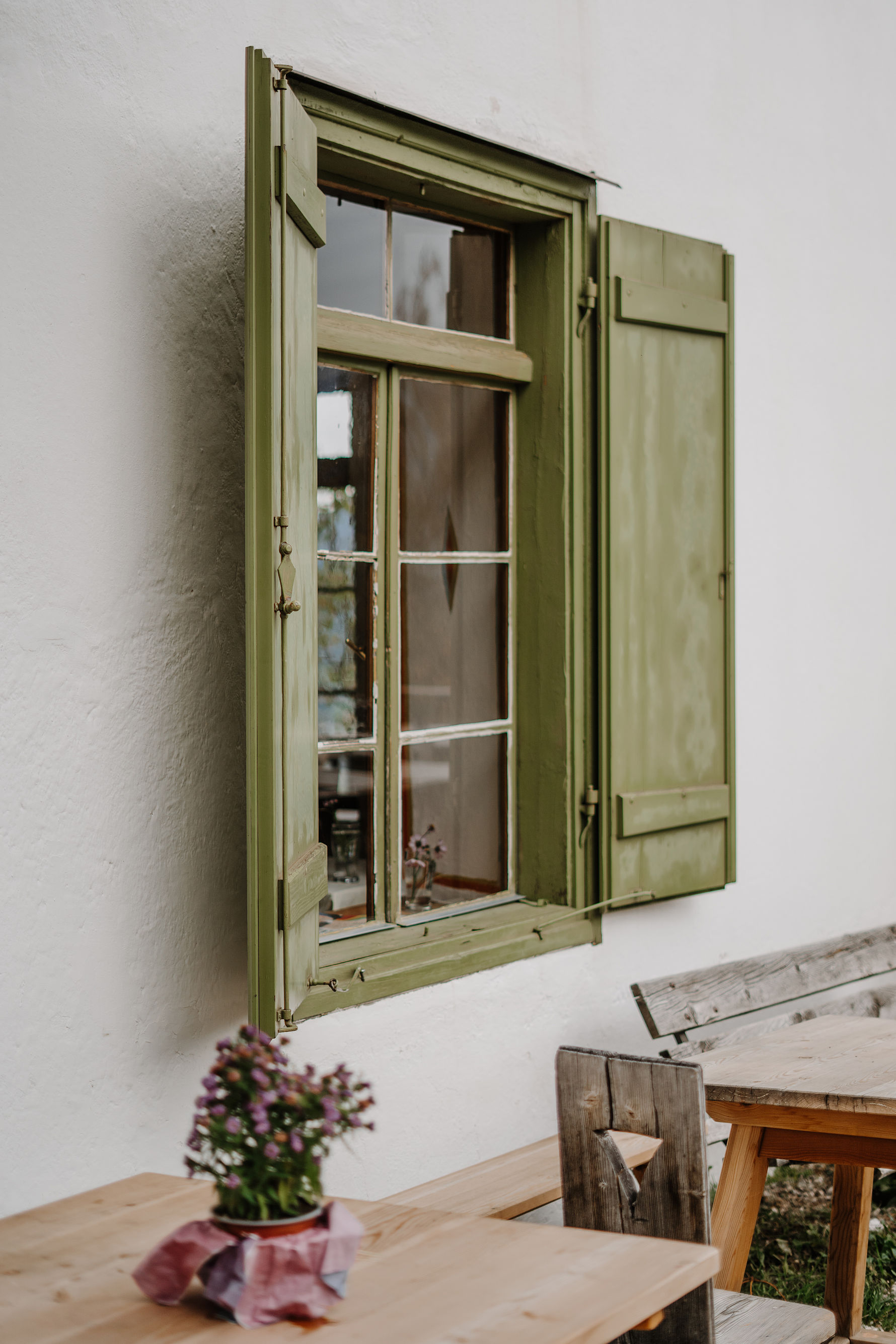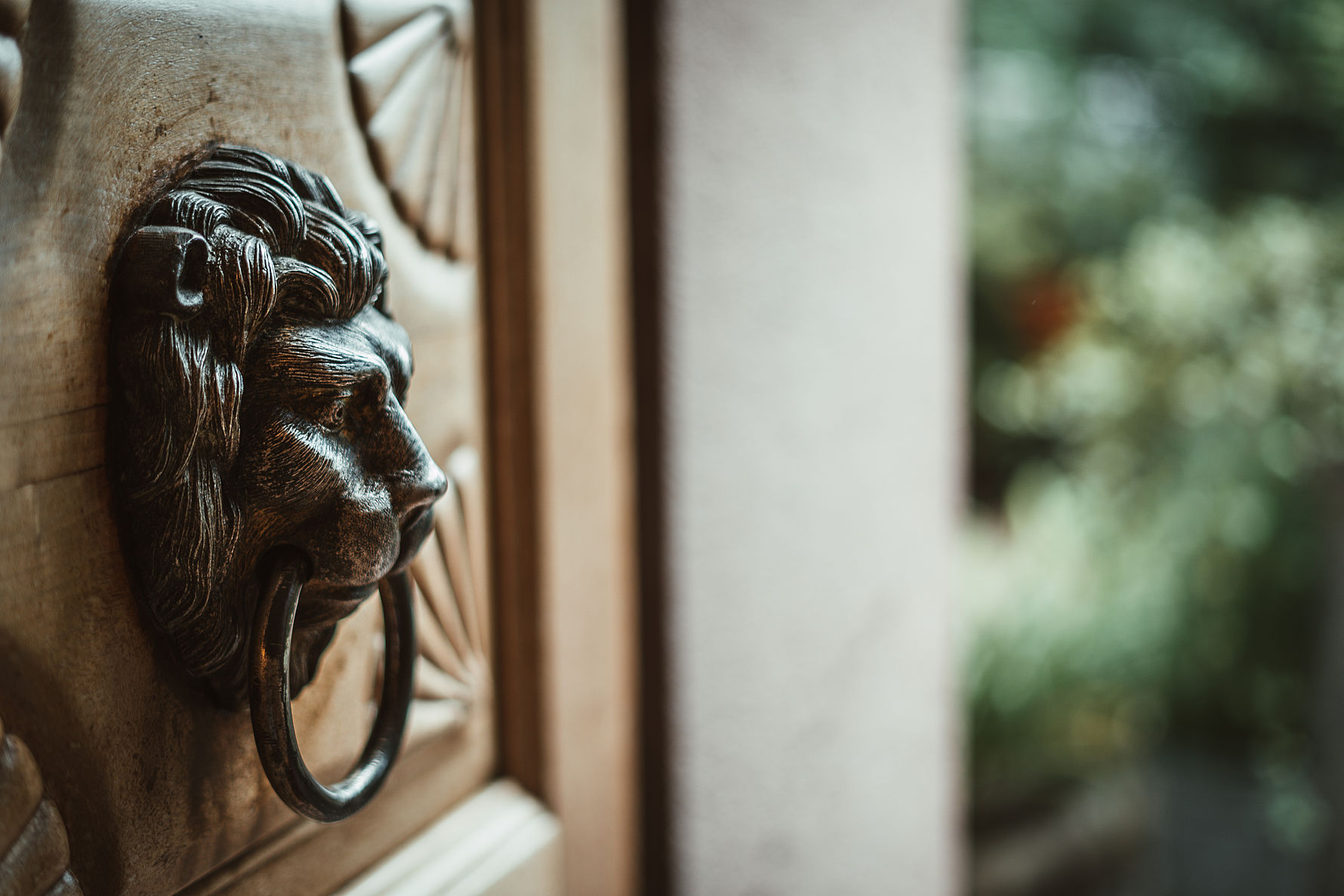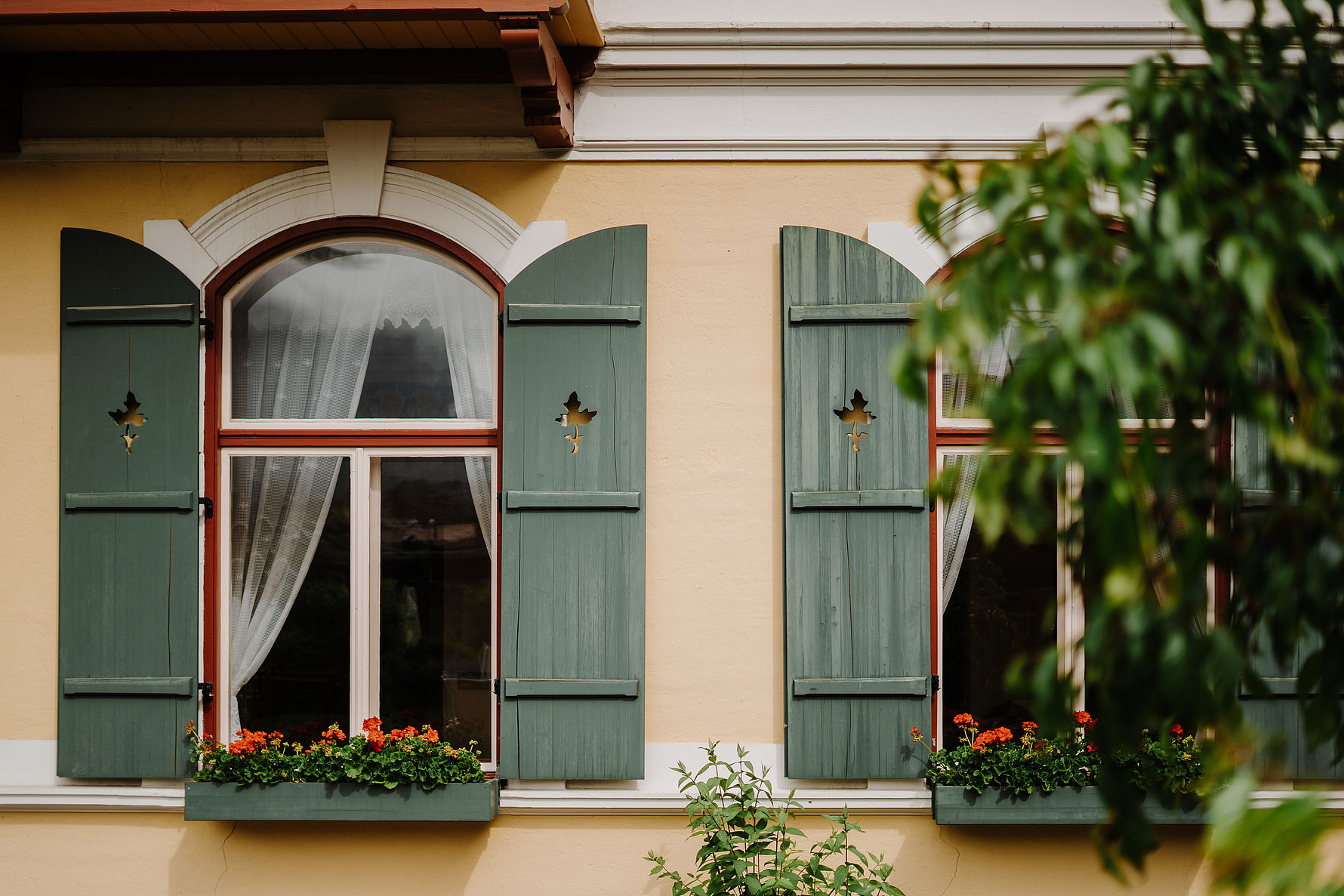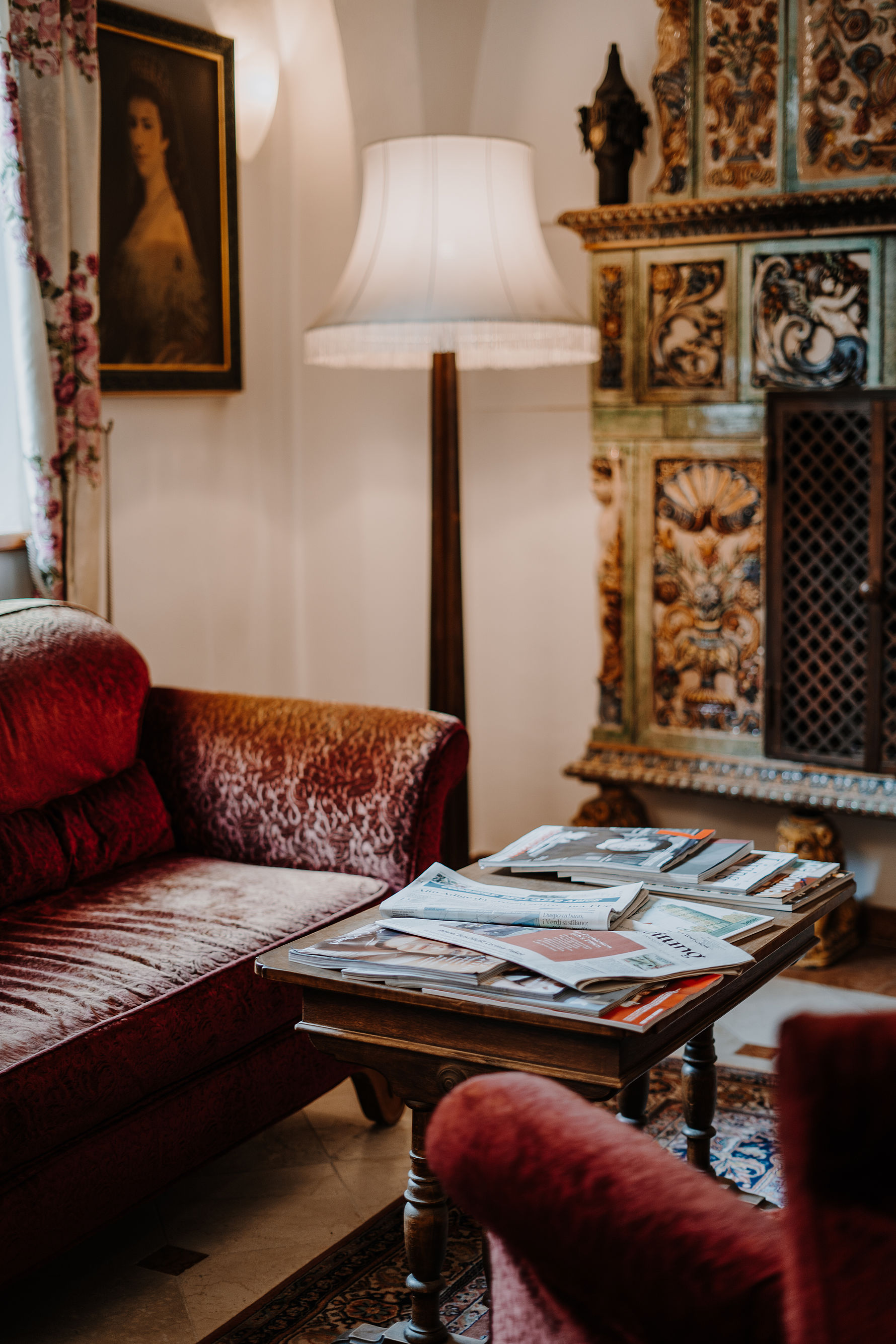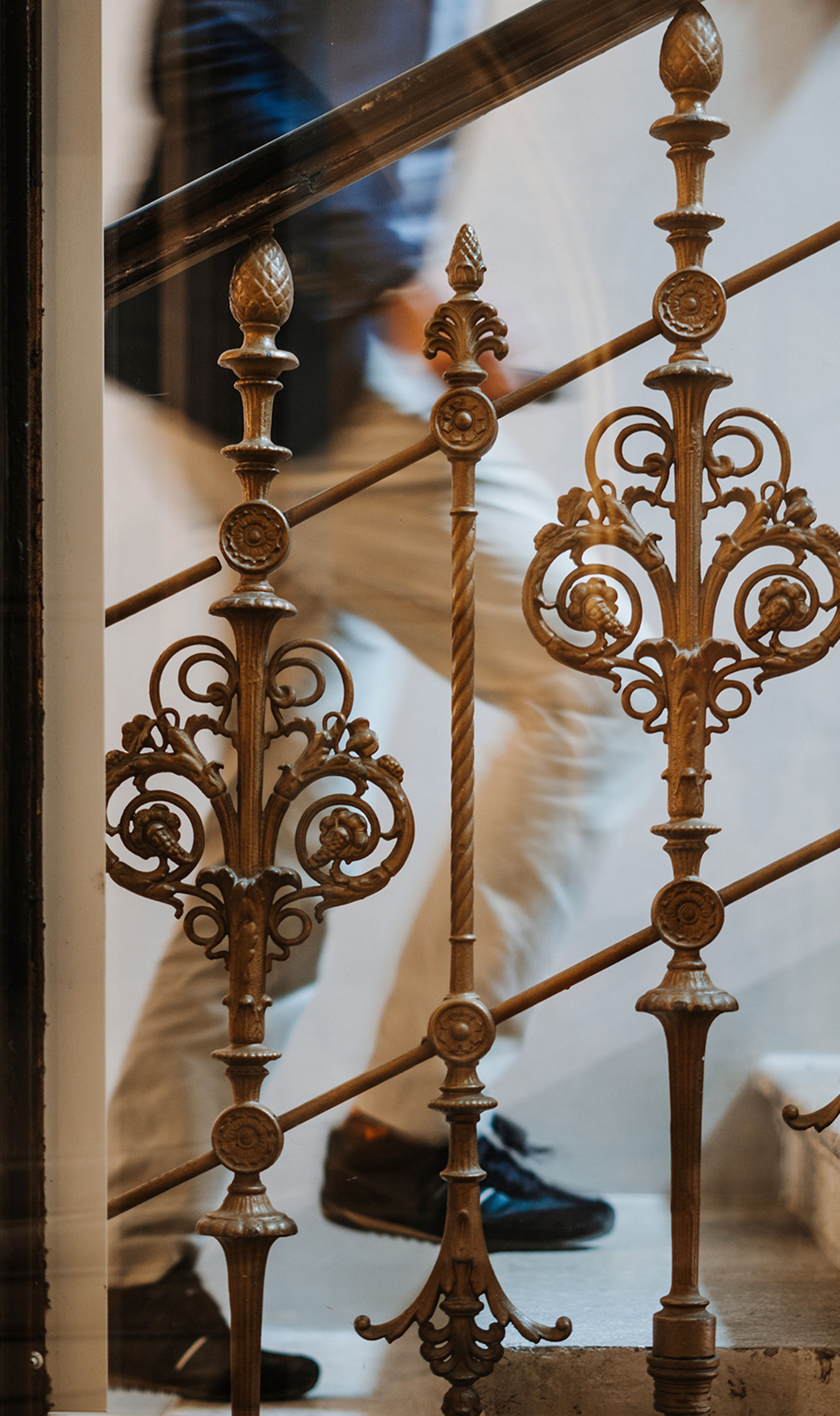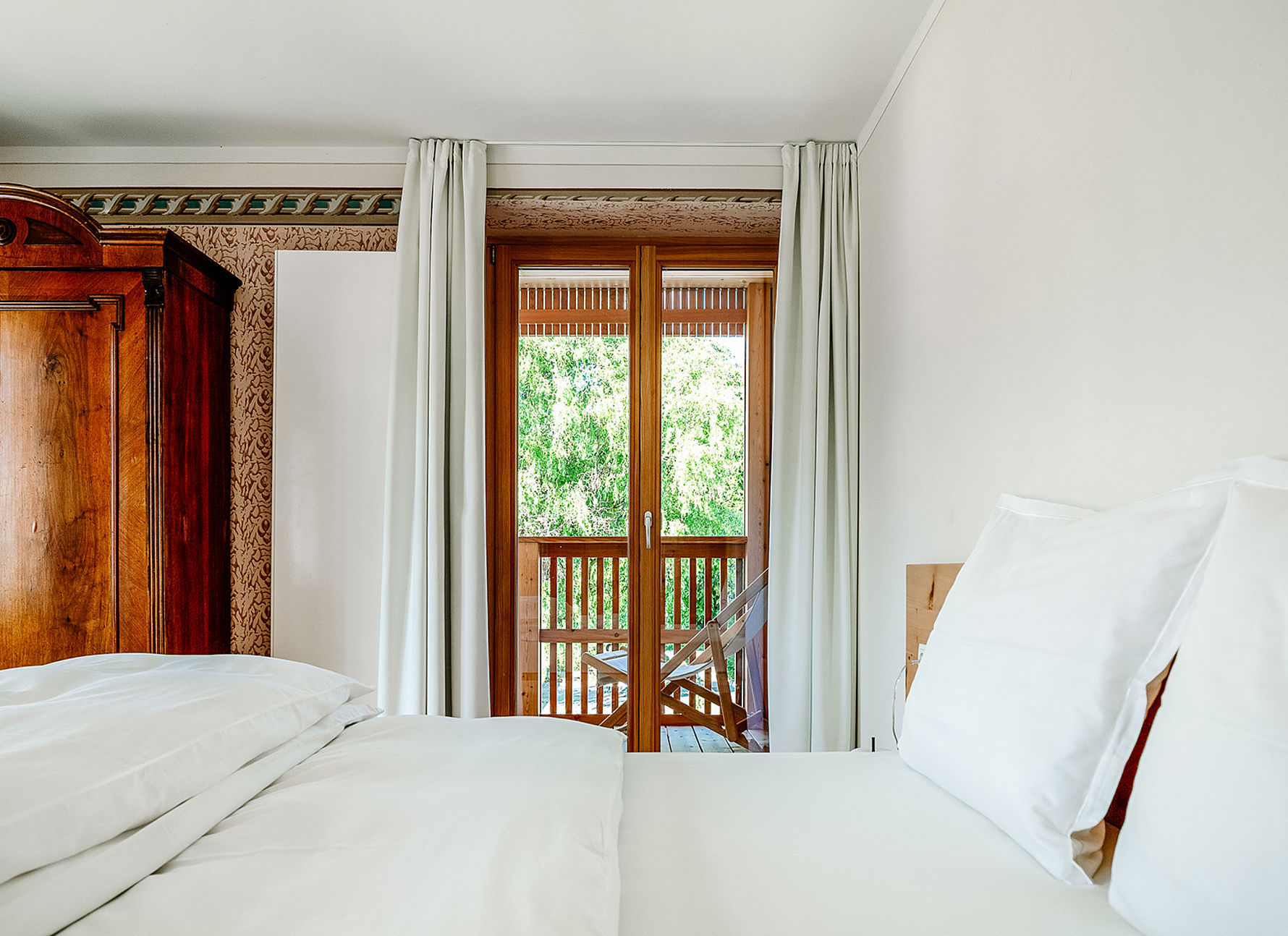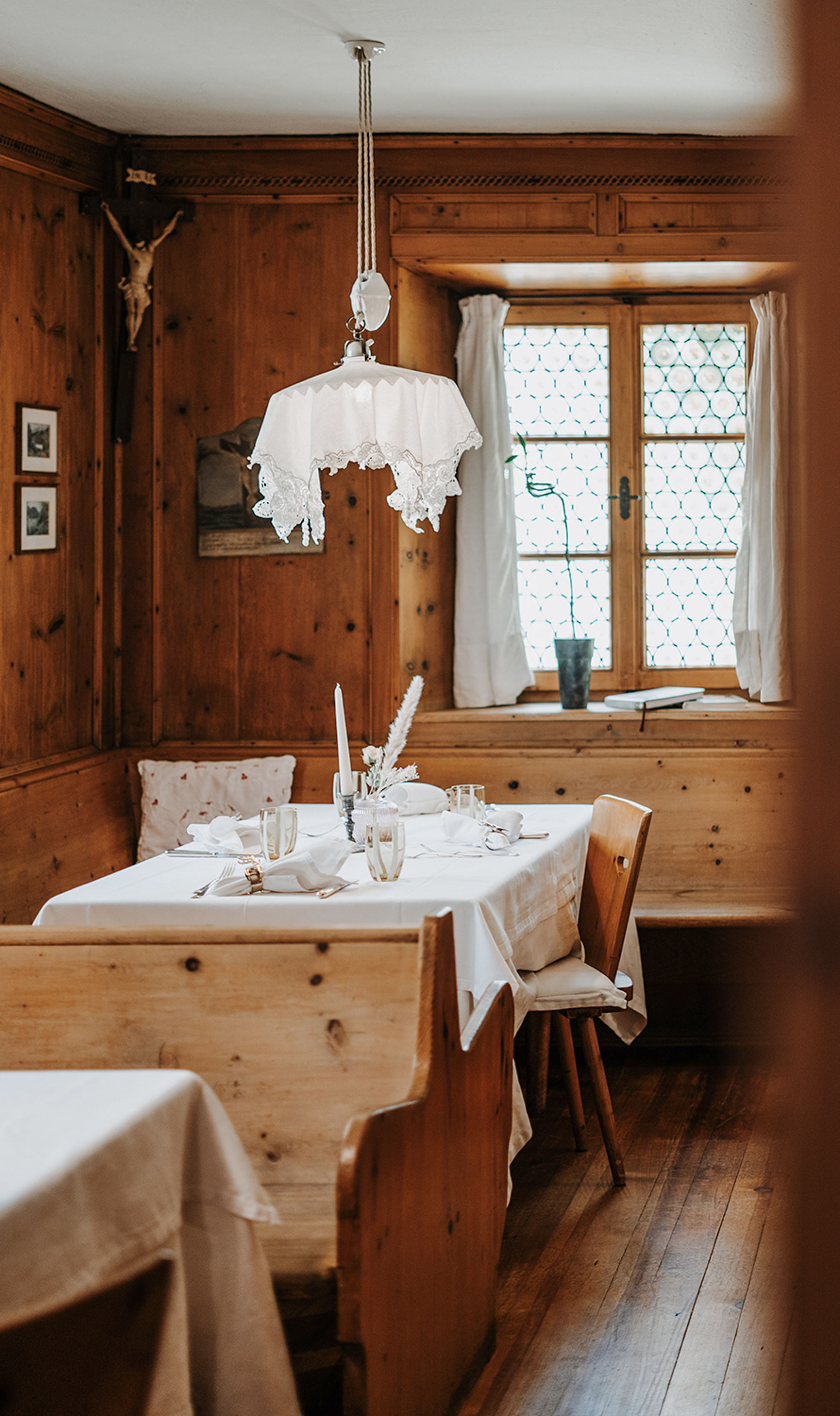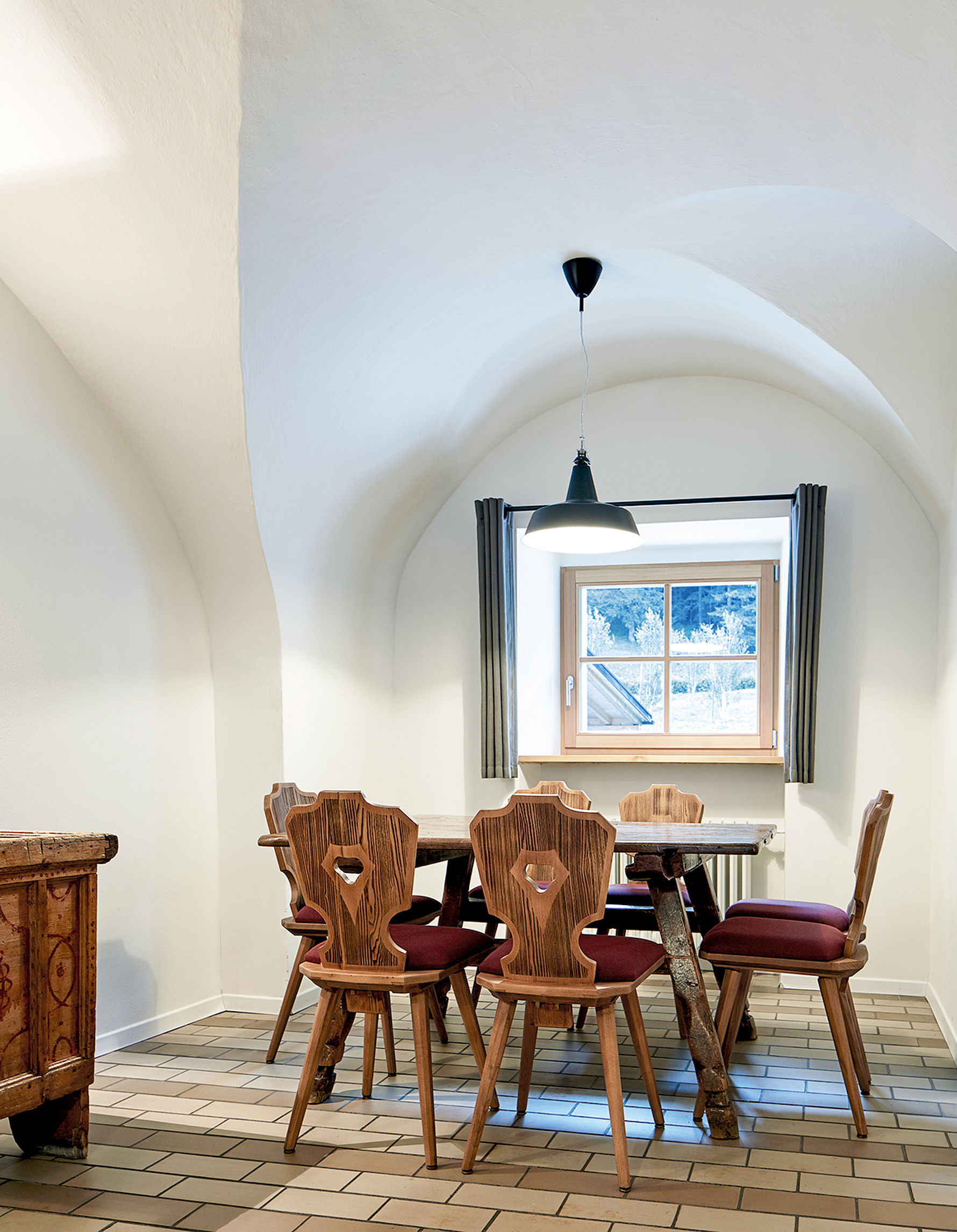A conversation with Martin Kirchlechner, host of the Ottmanngut in the centre of Merano, in the garden of the estate about Momo, turtles, the Golden Twenties and the perks of walking backwards. An oasis in the city, where time becomes a blur.
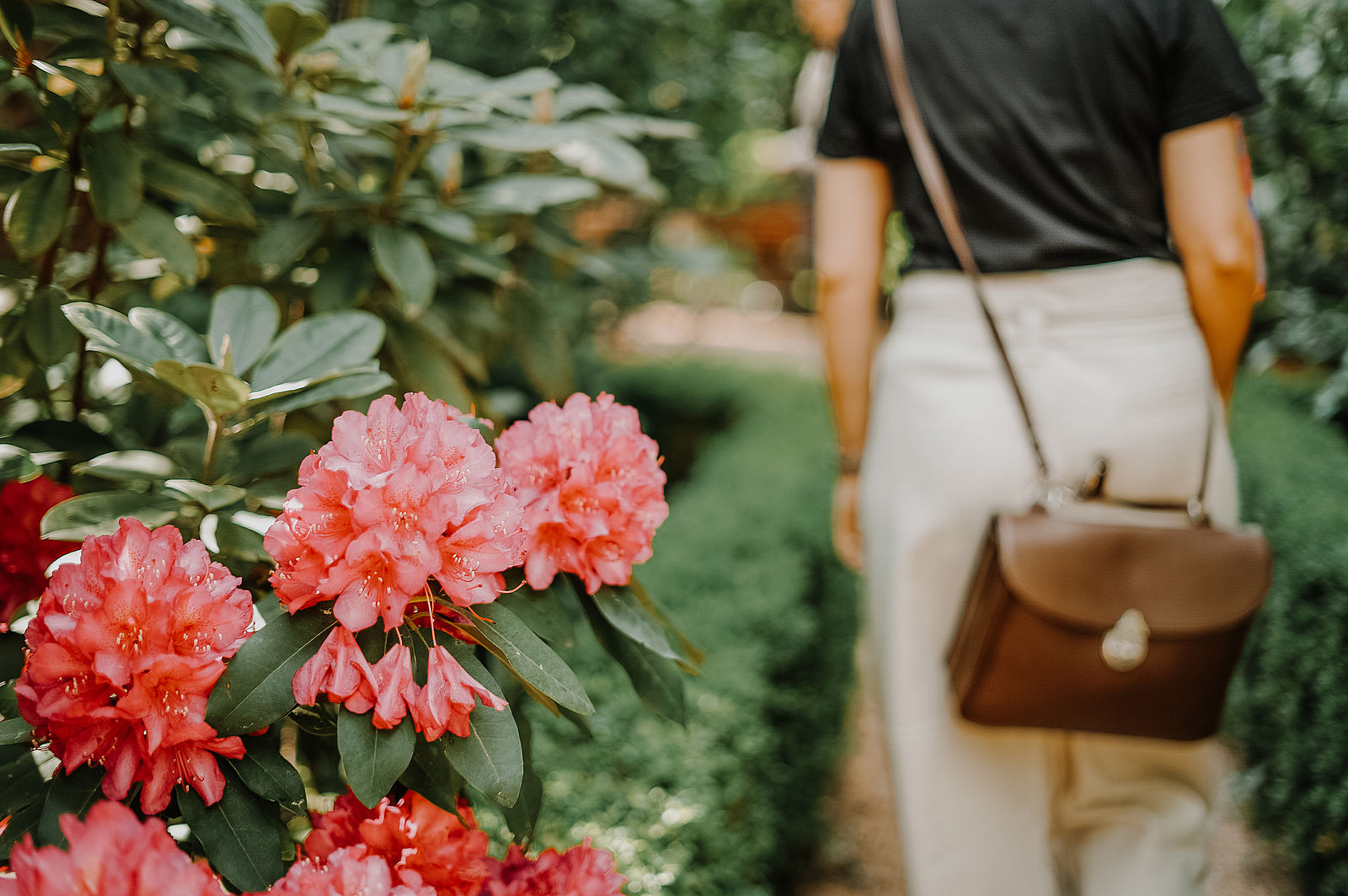
Historic: There is a passage in Michael Ende’s novel ‘Momo’ where Momo tries to get to Master Hora, the keeper of time. She doesn’t really make any progress until Kassiopeia the turtle advises her to walk backwards. There are two turtles in this garden…
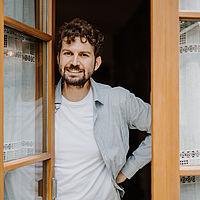
Martin Kirchlechner
Host at the Suite and Breakfast Ottmanngut
They are fascinating. I keep seeing people stop and watch those two turtles. Some even sit down at one of the two front tables to do it.
Was renovating the Ottmanngut your way of walking backwards?
Martin Kirchlechner: It was walking backwards and forward at the same time. On the one hand, we renovated the house and modernised it in terms of conveniences; in other respects, we went back in time, reversed 1950s architectural aberrations, and returned the family furniture to the house.
We proceed this way even apart from architectural matters. We keep changing things, making little twists here and there, but the big picture, the fundamental idea of the Ottmanngut, remains more or less the same.
What is the fundamental idea of the Ottmanngut?
Martin Kirchlechner: That guests should be able to settle quickly, to feel safe and at home. And at the same time to have a sense of freedom beyond the norms and patterns of a typical hotel business. The Ottmanngut allows you to open up and spread out.
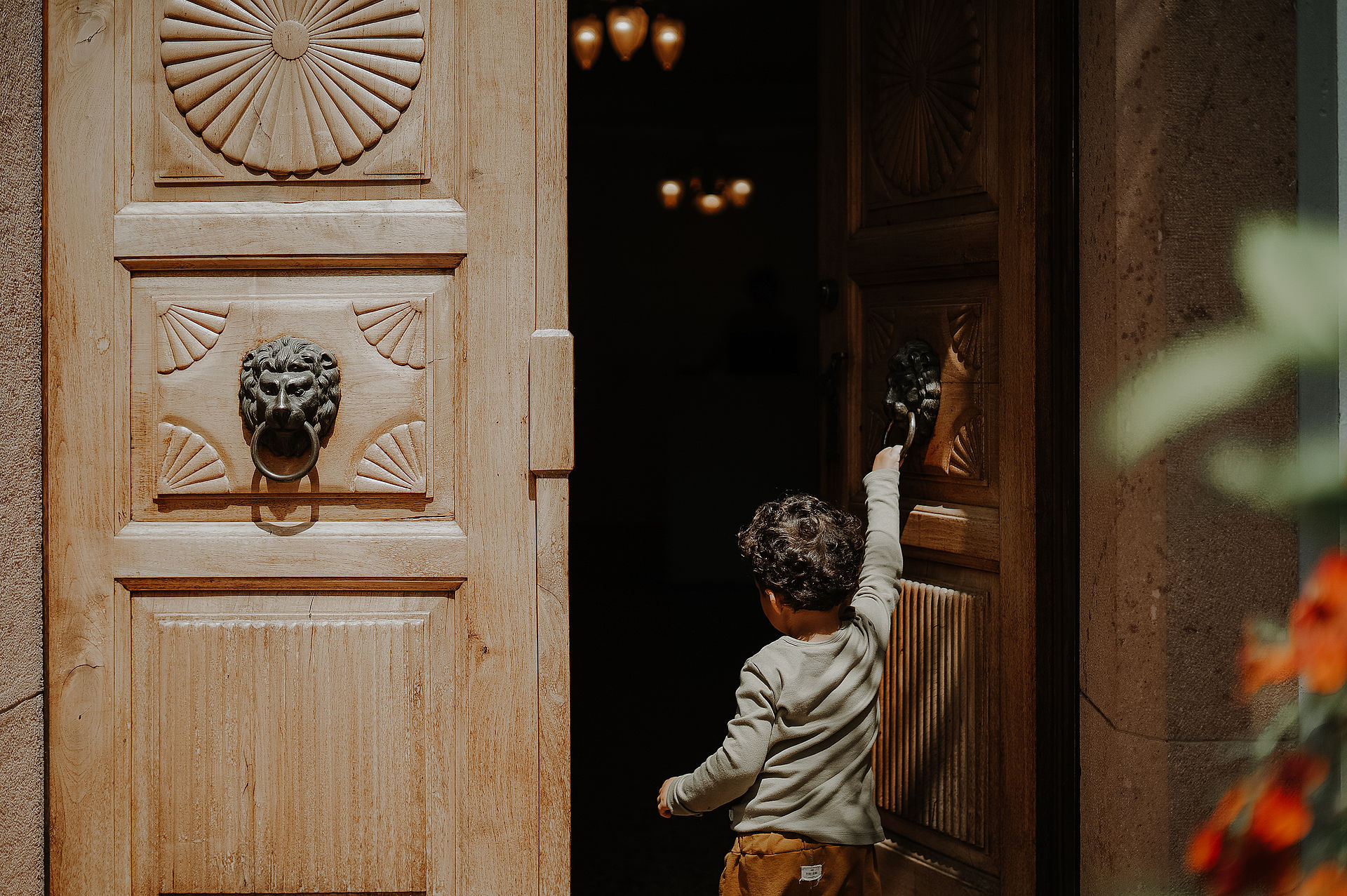
Growing with history. Free to strike out on your own. At the Ottmanngut in Merano.
The garden practically encourages you to do that.
Martin Kirchlechner: I like it when people enjoy their breakfast while reading the paper or a book and then they change their position by five metres or so, because this table has more sunlight, or that deckchair seems more comfortable. We don’t have a spa, our luxury is of a different kind: the garden, the quietude, the individual service.
There is also no buffet; breakfast is served at the table in multiple courses!
Martin Kirchlechner: Our initial role model was the Piz Linard in Lavin, Switzerland. They have a tiny buffet: homemade bread, one kind of cheese, one cut of meat, two jams, and a Bircher muesli. And it’s all absolutely delicious!
But the thing about buffets is: Only the first couple of guests enjoy it; there’s a sense of disquiet when you have to get up again and again; and you combine the wrong kind of products because you try to jumble everything on your plate.
As a restaurant guest, I hate making decisions. I prefer having things brought to me. So, we tried the same concept as hosts and received surprisingly favourable feedback. We had thought the guests would be taken aback because breakfast habits are often very rigid, but no! Now we are able to focus on seasonal and regional products even better.
»Our luxury is of a different kind: the garden, the quietude, the individual service.«
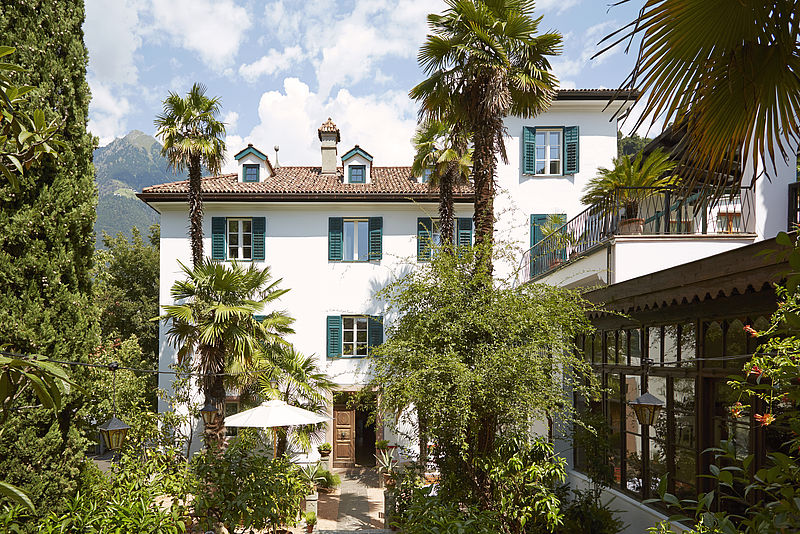
Suite and Breakfast Ottmanngut
Time appears to be relative at the Ottmanngut in Merano. In between palm trees, citrus fruits, and cypresses, the noises of life will fade, and your eyes will focus on what really matters.
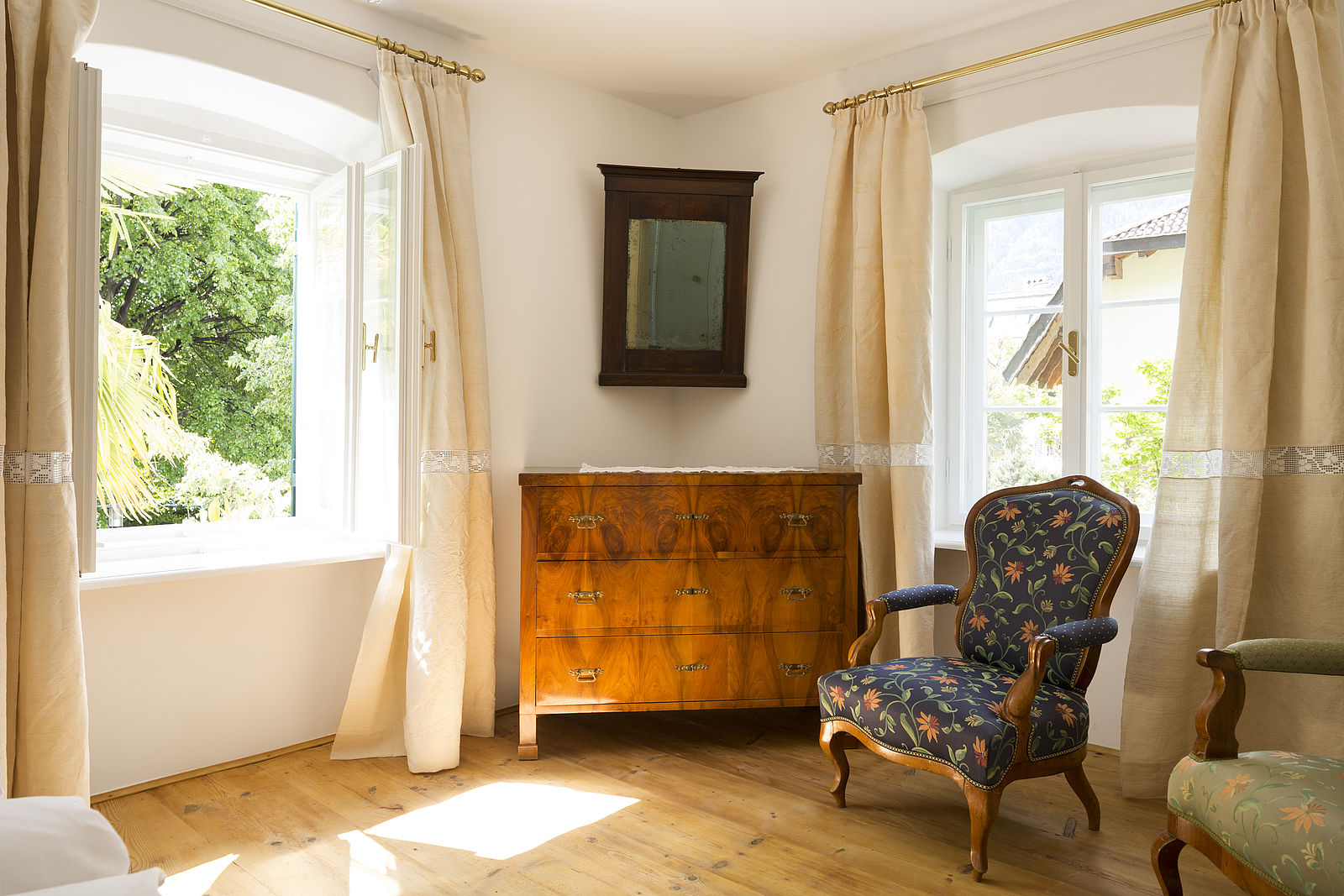
Having breakfast in the Mediterranean garden or the former orangery is a special experience. When was the place built?
Martin Kirchlechner: The orangery, which today accommodates the breakfast room, was erected in 1850. In 1875, when the building was expanded, the orangery was moved to its current position.
And the building itself?
Martin Kirchlechner:The first official record of the premises is from 1290, when it was referred to as ‘Psoren-Gütl’. There’s a pretty long list of owners that goes back to the 15th century. Originally, this was probably a farmhouse with winery and husbandry, later a simple inn. It was sometime in the mid-19th century that the first guests stayed here. We don’t know exactly, but we have one clue: a registration form dated 1854.
Did your family own the place already back then?
Martin Kirchlechner: Yes. My great-great-great grandfather Alois Kirchlechner bought it in 1850, apparently to spend his summer holiday here—a mere 500 metres away from his arcade house in the city centre! (Laughs.) At the time, the Ottmanngut was a green-field, stand-alone building. It allowed you to escape the narrow, stuffy arcades.
Around 1914, the house got its grand character with the balconies on the northwest face, the stone oriels, the terrazzo floors, and even herringbone parquet flooring in some of the rooms.
What happened next?
Martin Kirchlechner: In the 1970s, my grandparents took over the place. When my granddad died, my grandma kept working alone with incredible commitment—until 2010.
»The Ottmanngut allows you to open up and spread out.«
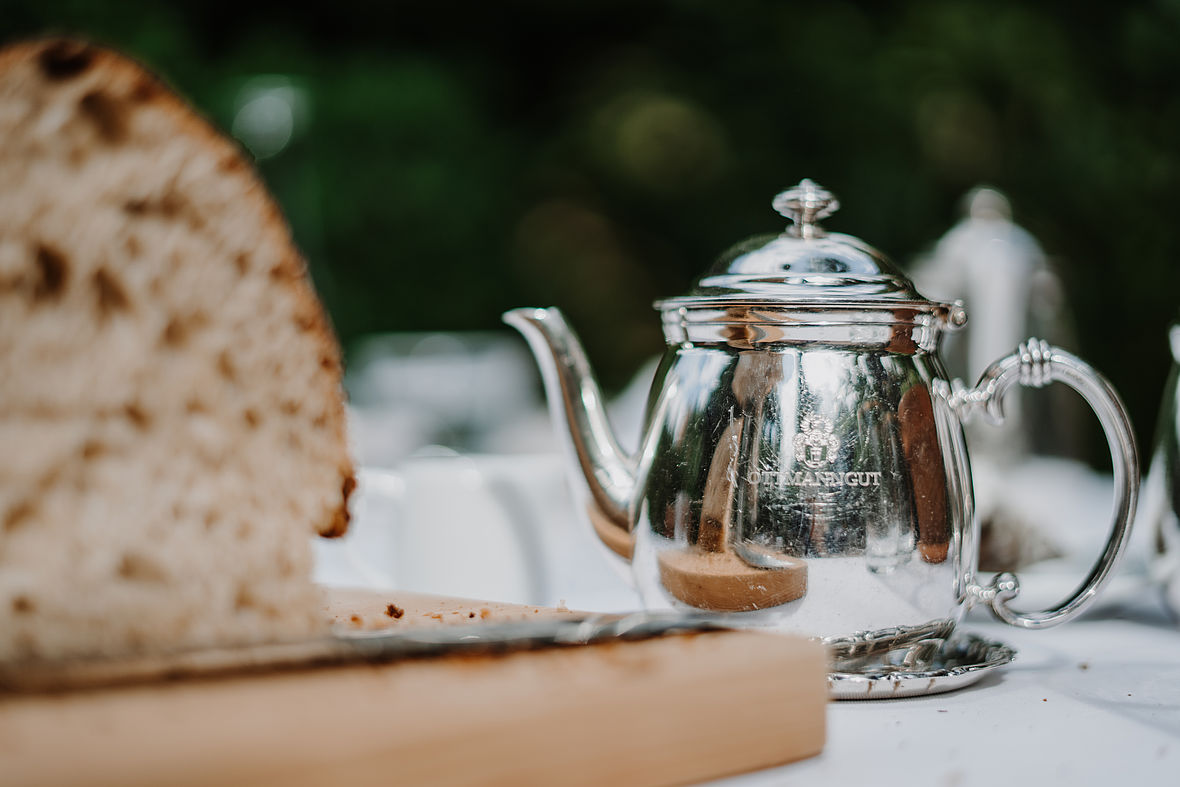
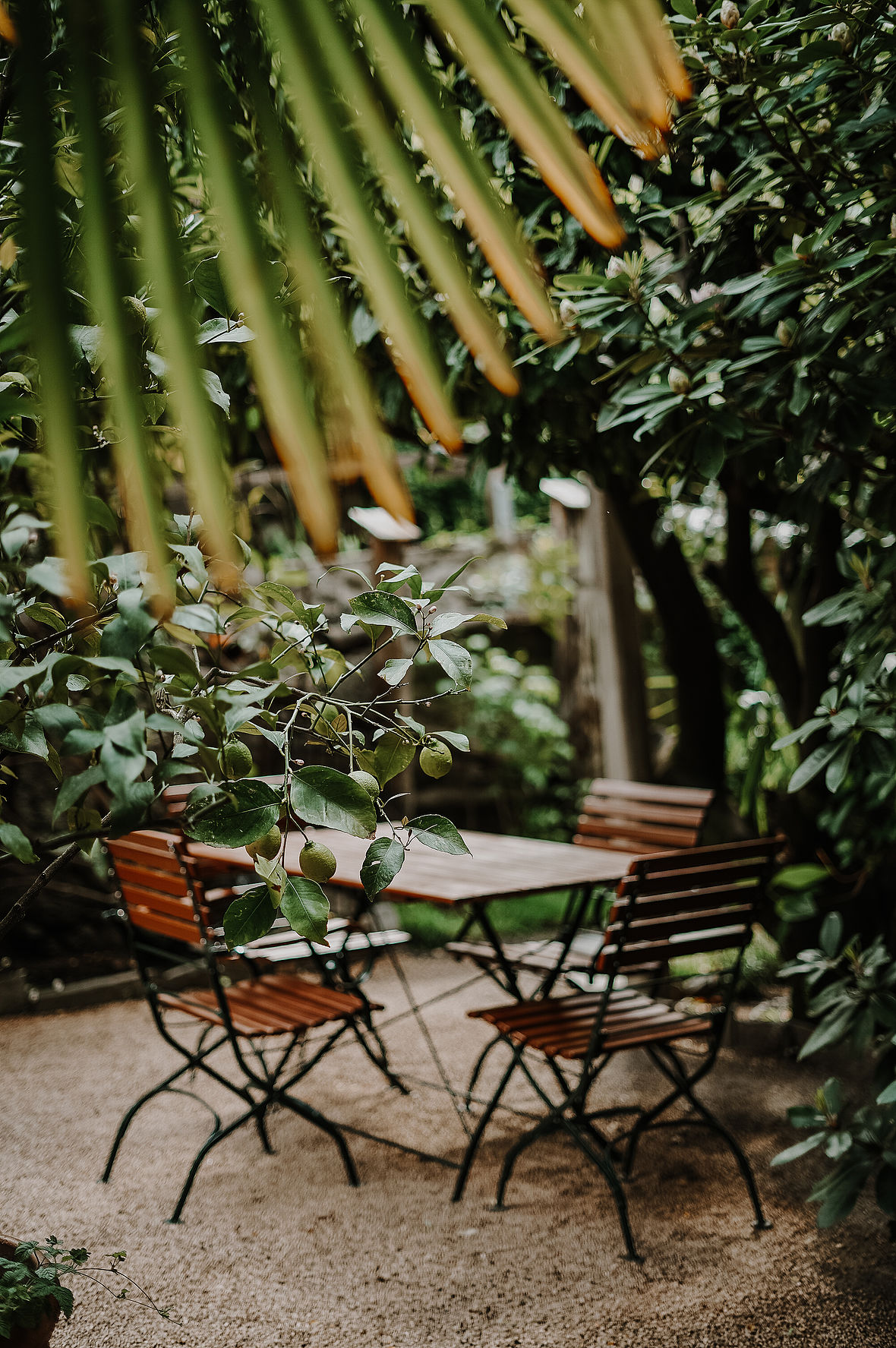
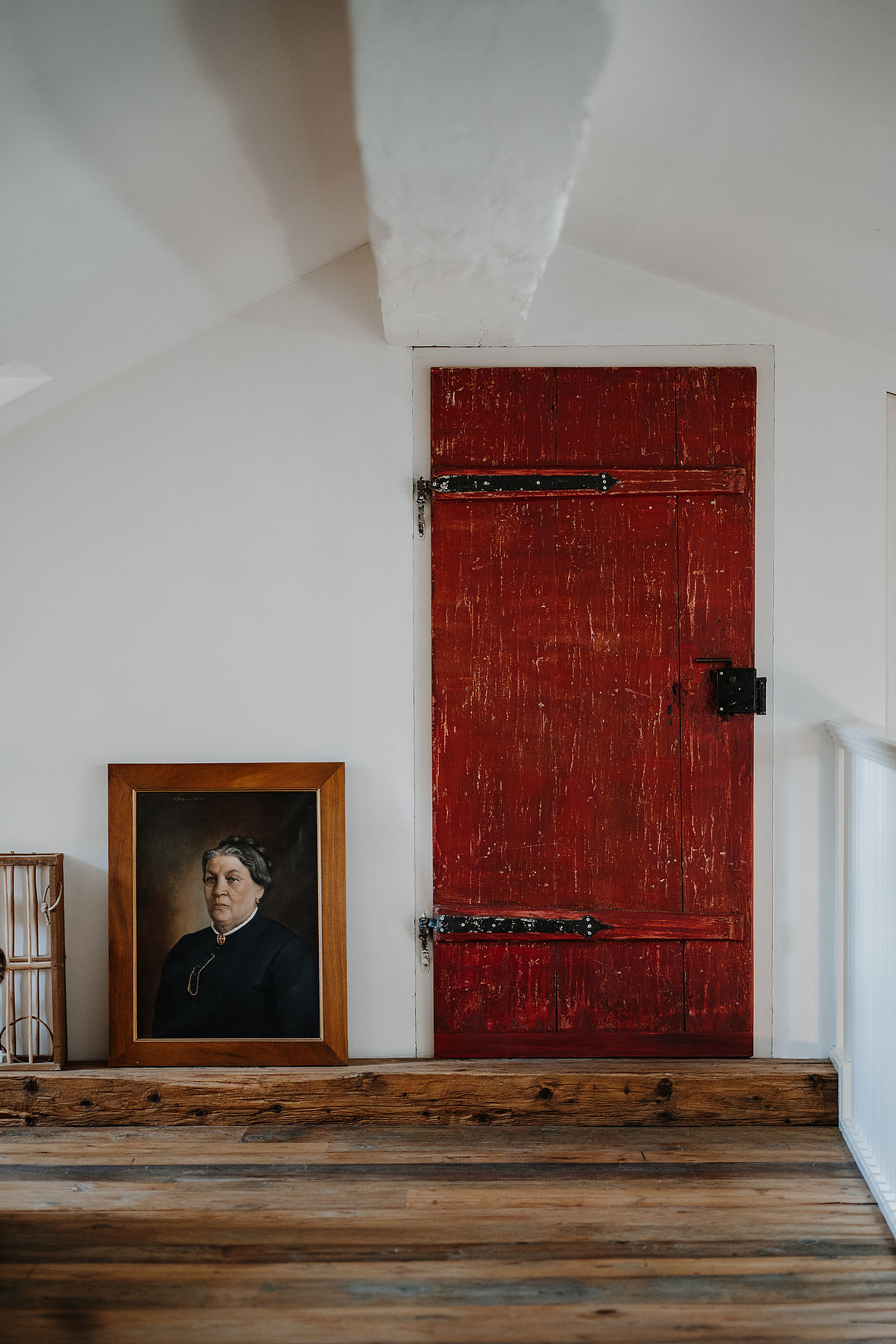
Then you followed in her footsteps. Was that a logical step?
Martin Kirchlechner: It was not. My brother and I were not hotelier children at all. We noticed the guests mainly in two instances: when they gave us sweets, and when we reluctantly carried their bags to their rooms because our grandma had asked us to.
How come you took over anyway?
Martin Kirchlechner: When our grandma had to retire for health reasons, we renovated the house. That was when I first carefully suggested I could take over the place. But first I had to convince all relatives in a series of “familial job interviews”. This place has always been the centre of our extended family, everybody holds it near and dear. A cousin of my father’s arrived with two pages full of questions. (Laughs.) I get it: I had no experience whatsoever.
So, you started from scratch, alone?
Martin Kirchlechner: There were mentors like the hosts at the Goldene Rose in Certosa and those at the Miramonti in Avelengo. But basically, it was a leap of faith. Looking back, it’s kind of funny that it worked out. We pretended that we were inviting strangers into our home every day and just did the things you would then do.
The Ottmanngut seems to attract exactly the right guests.
Martin Kirchlechner: This has always been a place of encounter. There was a lot going on here culture-wise in the 1920s—the so-called Golden Twenties. We wanted to pick up on that, so we organised readings, concerts, and exhibitions to attract the locals and allow them to interact with the place even though it has no bar or restaurant.
Many long-lasting friendships have been created here at the Ottmanngut. We encourage that. If you don’t want to go along with it, you don’t have to. But the informal atmosphere makes it possible.
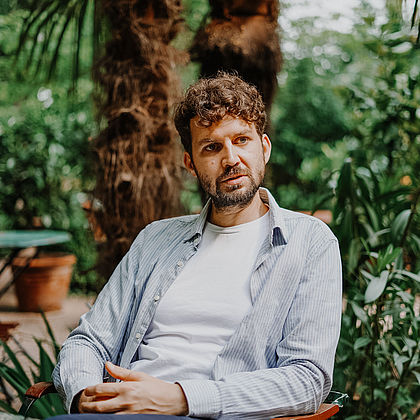
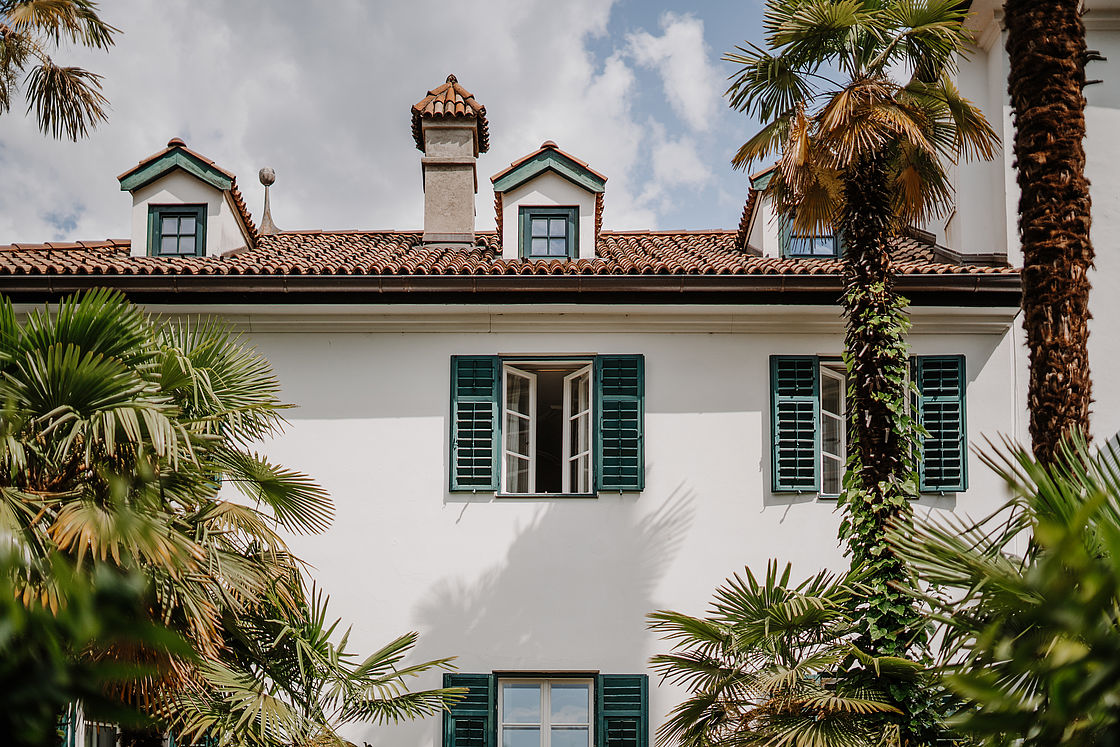
Ottmangut Suites and Breakfast
Via G. Verdi 18
39012 Merano, South Tyrol
+39 0473 449 656

